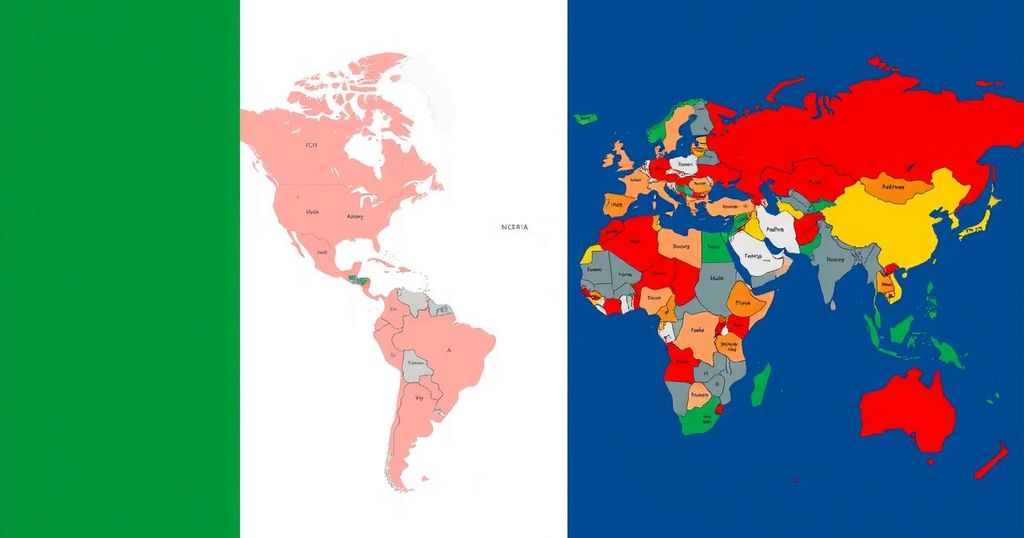Nigeria’s Economic Rebase: Aspirations Amidst Challenges and Reforms
Nigeria plans to rebase its GDP and CPI by 2025, incorporating the informal sector to enhance policy accuracy and attract investment. While historical rebasing significantly altered GDP figures and boosted Nigeria’s status as Africa’s largest economy, actual economic growth remains questionable. Recent economic reforms aim to address urgent challenges, highlighting the necessity of concrete actions over mere numerical adjustments.
The Nigerian government’s intention to rebase its Consumer Price Index (CPI) and Gross Domestic Product (GDP) by 2025 is indicative of its strategy to encompass the informal sector, which constitutes 60% of the nation’s economic activity. This rebasing aims to enhance the accuracy of economic policies and instill investor confidence. Historically, Nigeria’s rebasing efforts have significantly altered its GDP size, as seen in 2014 when a rebasing exercise nearly doubled the national GDP, temporarily positioning Nigeria as the largest economy in Africa, surpassing South Africa. However, despite this optimism, numerous stakeholders emphasize the necessity of actual economic growth rather than mere numerical adjustments. The recent update by the Nigerian Bureau of Statistics (NBS) on unemployment methodology inflated the employment data, masking the genuine economic challenges facing the country, where real unemployment is estimated to be between 45-50%. While Nigeria’s approach to GDP computation is aligned with international standards, the nation’s economy has contracted by nearly 31% from 2014 to 2023. As a result, the IMF anticipates Nigeria’s descent to the fourth-largest economy in Africa by the end of 2024, signaling a critical need for substantial economic reforms rather than superficial adjustments. The government, since May 2023, has initiated several reforms aimed at addressing long-standing fiscal challenges, including the removal of petrol subsidies and liberalizing the foreign exchange market. However, these reforms have encountered backlash due to skyrocketing inflation, with recent figures reaching 33.88% and a staggering depreciation of the national currency. Consequently, many multinational companies have exited the Nigerian market due to adverse business conditions. Addressing core issues such as insecurity, forex crises, and infrastructure challenges will be vital for Nigeria to reform its economic landscape effectively. Furthermore, there is an urgent requirement for a comprehensive, coherent economic strategy with measurable targets to guide Nigeria towards sustainable growth and stability.
The focus on Nigeria’s rebase of GDP and CPI is crucial as it reflects the economy’s structure, particularly the significant role of the informal sector. Previous rebasing efforts have had considerable implications, shaping perceptions and attracting investment. However, the disparity between inflated economic data and actual conditions raises concerns about the robustness of such methodologies. Recent shifts in employment reporting frameworks highlight the challenge of presenting an accurate economic picture, necessitating a comprehensive understanding of the underlying issues affecting growth and stability. The government’s new economic policies indicate an awareness of these challenges but require coherent execution to be effective in fostering an environment conducive to sustainable development and investment.
In conclusion, Nigeria’s upcoming rebasing of its economic indicators marks a pivotal step towards accurately reflecting its growth trajectory and policy efficacy. However, superficial adjustments must give way to profound, systemic reforms that address the multifaceted challenges facing the economy, from infrastructural deficits to insecurity. Without a well-articulated economic strategy and the commitment to implementing meaningful changes, Nigeria’s aspirations for economic supremacy may continue to elude reality.
Original Source: punchng.com




Post Comment